November 23, 2021
Project 2021: Meeting High Demand Proves Challenging
There’s a strong appetite for promotional products, particularly for fourth-quarter gift-giving, but supply chain and inventory issues are making it tough to satisfy that demand.
The demand is there. Across the board, suppliers, distributors and decorators report a near-insatiable desire for everything from delicious food gifts to high-end, name-brand apparel. But inflation is flattening margins for many, and supply chain and inventory issues are forcing some promo companies to turn away orders. Still, most of the 10 companies we’ve been following for the last year are pleased with how they’ve been able to navigate this challenging year – and are optimistic about what 2022 will bring.
Since January, ASI Media has been following the recovery of a cross section of industry players across the United States and Canada – from one-person operations to Top 40 multinational firms. Each month, we’ve checked in to learn about their unique issues and celebrate their hard-won successes. You can read the previous installment of the series here. Stay tuned for the final installment, which will be published at the end of December.
The Decorators
Rowboat Creative: Merch Collab Heats up November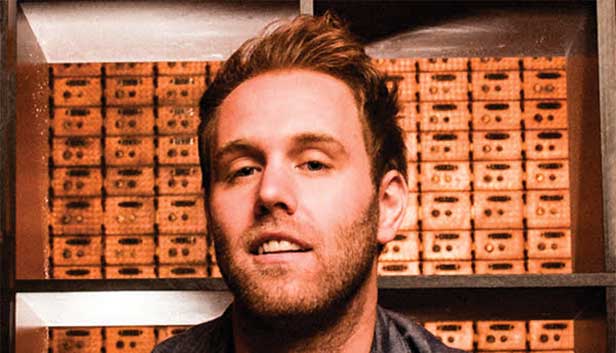
Lucas Guariglia, owner
The holiday season is looking bright for Chicago-based Rowboat Creative (asi/313715). Holiday drops and corporate gifting – involving name-brand goods and high-end custom manufacturing – have been picking up steam. Of particular note is a merch collaboration between rapper Megan Thee Stallion and fast-food chain Popeyes to promote their new Hottie Sauce. “The pieces are very involved, so production on large quantities includes sometimes five to six imprints or embellishment locations per piece,” says Lucas Guariglia, owner. “The drops are starting to surface to the public and have been very well received so far.”
Rowboat also has projects in the works with some major restaurant groups and has been seeing a resurgence of live branding activations. “Our reach in this space has continued to grow, and we’re excited to continue to scale up our experiential wing,” Guariglia says.
Supply chain snags, inventory shortages and pricing increases continue to be a challenge for Rowboat. Sourcing machinery and decorating equipment parts has also been a challenge, which can be detrimental to fluid production. “We tend to work very quickly, but we’re constantly urging our clients to make their moves rather quickly due to the pipeline issues the industry is still faced with,” Guariglia notes. “This is a tough line to walk in remaining transparent with the reality of the current situations, but also not coming across as pushy.”
Despite the many challenge of 2021, Guariglia says Rowboat has been having one of its strongest and most profitable years – and is even expanding in a new territory, working on opening an office in Charlotte, NC.
“We’ve been firing on all cylinders together as a company,” he adds. “We’ve become smarter, leaner and overall more savvy with how to navigate the space we have carved out in the industry for ourselves.” – Theresa Hegel
Rockland Embroidery: Snowballing Challenges a Concern
Andy Shuman, general manager
The snowball effect is readily apparent at Topton, PA-based Rockland Embroidery (asi/83089). The issues hampering the industry as a whole are taking a toll on what the contractor is able to accomplish and how quickly it can get things done.
“We’re not able to commit to dates needed for many orders because of supply chain and logistical issues … essentially pushing all turn times to a longer window regardless of whether or not any one specific order was subjected to the inventory challenges, delays or mis-shipments that have become increasingly common,” says Andy Shuman, general manager of Rockland. “In a nutshell, most orders have a much higher ‘touch ratio’ prior to production.”
Still, Shuman feels optimistic, maintaining that the strong demand for apparel that has been evident for the last few months will continue into 2022. “I view that as a great position,” he adds.
The trick, he says, is that distributors need to adjust to the new normal, rather than counting on things to go back to the way they were pre-pandemic anytime soon. It’s all about modifying buyer expectations and implementing strategies to navigate the challenging landscape.
Any return to normal is “likely to be a very slow roll,” Shuman says. “We tend to try to predict when things will be normal again, when in reality normal could be something we inch toward, while possibly redefining, quite slowly.” – TH
The Suppliers
Fairytale Brownies: High Volume but Low Margins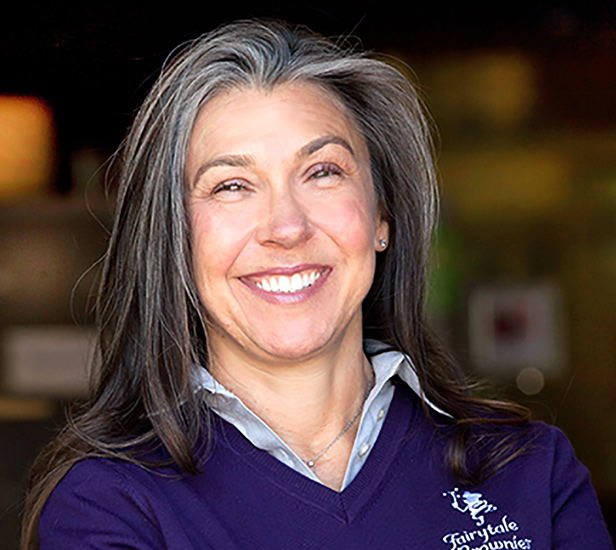
Eileen Joy Spitalny, co-founder
Sales are going strong for Phoenix-based Fairytale Brownies (asi/53518), with fourth-quarter gifting in full swing. By mid-month November, sales were almost double what they were during the same time frame in 2020, according to Eileen Joy Spitalny, co-founder. Tempering that good news, however, are increased costs that are flattening out margins.
For the most part, distributors have heeded warnings to get holiday orders in as early as possible, so that preferred inventory can be reserved for end-users. But not everyone has listened. “Unfortunately, some very high-quantity requests have come in later this year, and we’re not able to completely fulfill the request,” Spitalny says. “We need more of a heads-up for those extremely large orders … to build them into our Q4 baking production schedules.”
Still, Fairytale Brownies has made a number of operational improvements in 2021 that will set it up for future growth. “Our new brownie wrapper is twice as fast, and we reconfigured our whole warehouse layout and packing production lines,” Spitalny says. “The result we’re seeing is increased production output volume with the same staff levels in some departments.” Another new machine – delayed because of supply chain issues – will be delivered in the spring, further improving productivity. – TH
Starline USA: Preparing for 2022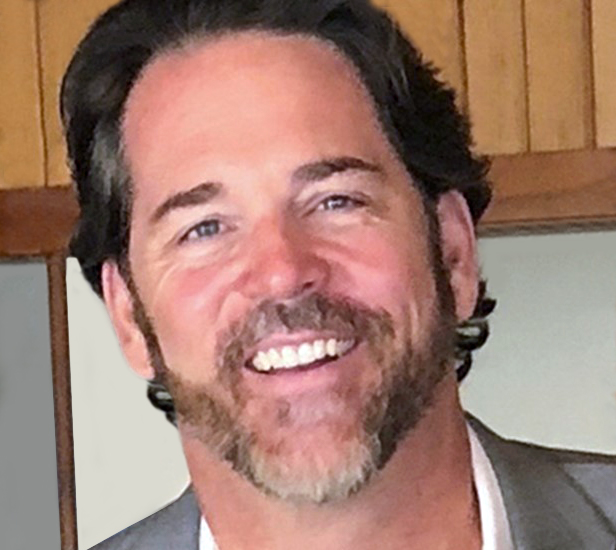
Brian Porter, senior vice president of sales and marketing
Starline USA (asi/89320) continues its upward trajectory. Sales for the month of November are on track to be up 40% over the prior month and more than 50% above November 2020.
This is in the face of ongoing supply chain challenges, which Brian Porter, senior vice president of sales and marketing, says the Starline team is doing its best to address. “We’re handling the situation as good or better than most,” he says. “We use different channels to get goods into our facility, which has allowed us to stock up sooner.”
Despite ongoing inflation across the economy, Porter says consumers are adjusting to rising prices. “I think people are accepting the reality of where we are, and this will continue through the end of Q4.”
Home goods, coolers and drinkware continue to perform well, according to Porter. “They offer a high ROI that delivers what companies want for their clients and employees,” he says. “They’re done settling for commodity items. They want something with life to it, that carries both the brand and the quality for long-term use.”
Now, Porter and his team look forward to an active trade show season in Q1. “Many distributors still aren’t fully up to speed in their offices, so supplier reps aren’t visiting them there,” he says. “But they still need to see, touch and hear about what’s hot and what’s working, in a comfortable, safe setting.” He adds that Starline is adopting a “layered approach” to trade shows, that will combine in-person shows with Zoom calls, strengthened e-commerce and a robust social media and marketing presence.
Now, Porter says they’re looking toward products for spring and summer promotions, expecting distributors to encourage end-buyers to continue purchasing early. “Soon, drinkware, coolers, BBQ items and anything that can be used in the summer months will be popular,” he says. – Sara Lavenduski
Compass: Busier Than Ever
Josh Levy, CEO
Compass (asi/46170) is ending the year strong. “November has been fantastic,” says CEO Josh Levy. “The ‘problem’ is that we’re almost too busy. We are running our machines 24/7, six days a week to try to keep up.”
The New York-based supplier expects to finish up approximately 30% or more in November compared to last year. The results aren’t surprising for Levy, who says the company’s brand-name tools and higher-end outdoor products typically sell well in the fourth quarter because of their value. As for the idea that end-buyers and distributors made their purchases earlier due to supply chain issues, Levy isn’t sure. “All I can say is that we have been busier than usual almost every month this year. And that compares to pre-Covid levels,” he says. “I think we did a good job in securing large inventory of our best sellers, so we have not had too many supply issues. It’s really now a matter of just being to able to fulfill all the orders that are coming in. However, distributors have been fantastic in understanding production time and what’s going on out there.”
As Thanksgiving approaches, Levy is thankful for good health, his family and most certainly the employees of Compass. “Every single one has worked their tail off this year, working nonstop, staying late, answering emails at 12 a.m., etc.,” he says. “Like a lot of companies, we are a little understaffed and did not anticipate such high demand, so I know that without the buy-in of every employee we would not be successful.” – C.J. Mittica
The Distributors
Jack Nadel International: Supply Chain Snafus Affecting Sales Success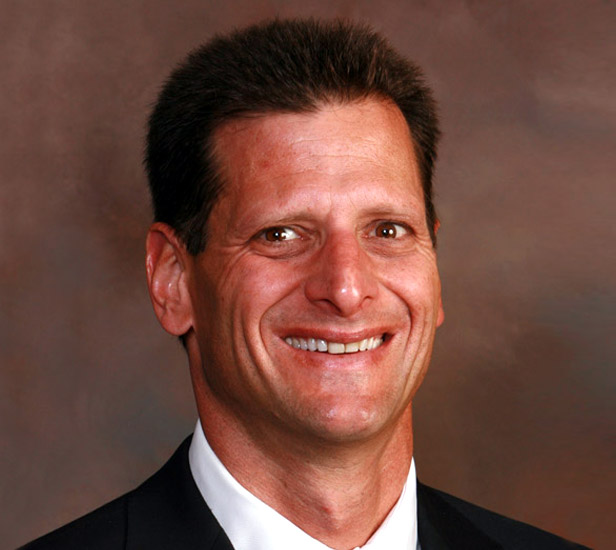
Craig Nadel, president
Sales at Counselor Top 40 distributor Jack Nadel International (asi/279600; JNI) have been on an upward swing, heading back toward 2019 numbers. We checked in to see how things are going in the second-to-last month of the year, and whether the company is busy due to holiday gift-giving or slowing because of inflation fears.
“One of the things we’ve always used to gauge business is booked orders, and the booked orders in October were amazing, much better than ’19 or ’20,” reports Nadel. “For us it was the fourth quarter last year when bookings got much better; unlike the other months, there’s not much difference between ’19 and ’20. The months of March to September of ’20 were much worse than those months in ’19, but that wasn’t the case in the last quarter of the calendar year. It’s also interesting in that bookings aren’t as good a measure as they used to be. Many booked orders aren’t coming to fruition, due to supply chain and inventory issues, so I suspect it will bill out less amazing – but still really good and better than either ’19 or ’20. Based on just bookings we were 50% ahead of both ’19 and ’20 for November, but I’m guessing that’s overstated and the actual number will be more like 25% or so, I suspect.”
As JNI is headquartered in California, Nadel is also acutely aware of rising gas prices in his home state, and the potential effects of inflation on the industry in 2022. “Inflation is an issue for sure, and not just for our industry,” he says. “It’s a burden on the suppliers who have to change prices and also for us with a few large clients. We have some stores with prices that must be fixed for a certain period of time, so it’s a little costly to eat those price increases and we’ll have to work with clients on new contracts as they come due.”
Moreover, with approximately 100 ships sitting off the ports in CA, Nadel has a bird’s-eye view – quite literally – of the supply chain congestion and how it’s affecting the promo marketplace. “I think the ship count is about the same as it was last month and slightly better than it was two months ago, so things do seem like they’re getting slightly better – though some of that might be behavior changes and client expectations,” he acknowledges. He adds that less-expensive plastic items aren’t in as much demand right now with clients and they seem to be easier to find; higher-end name brands remain a challenge.
Other hot industry topics remain a mixed bag: Nadel maintains that the staffing shortages issue seems to be getting worse for certain positions. JNI staffers have begun to travel but in a limited way. And when asked about his thoughts on the Biden administration’s mandate (currently under a “stay” in the court) that companies with over 100 employees must implement a mandatory vax policy, Nadel – as is his way – dives in. “I guess this will seem political, because it’s so controversial, and I do think it’s a shame that everything is so political now,” he says. “I think requiring vaccines is completely fair and good public policy. The preamble of the U.S. Constitution has the words ‘promote the general welfare’ right there. But I don’t think Biden has done a good job overall with the details of the mandate, and would have the preferred the rules be based on other things, not the size of the company. That said, it doesn’t appear as though it’ll become law from what I’ve read. Overall, I like the vaccine requirements because as I said, I think it’s good public policy.”
When asked about merger and acquisition activity in the industry starting to warm up again, Nadel is watching closely. “There are a couple of things that stand out to me,” he says. “First, I think most of the private equity people, and they’ve been the main drivers of M&A activity in our industry, have been happy with the results, which should increase M&A in the promo space. However, the PE people almost always work on leverage – a lot of leverage – and if interest rates go up, the merger activity will fall. Leverage is the fuel for their engines, and those two things – leverage and interest rates – offset each other. I think the latter is the more important of the two factors here. For sure if inflation remains high, rates will increase. However, if inflation settles back down, I think M&As in the industry will increase in 2022. If interest rates go up, all else being equal, mergers should decrease. Private equity entities depend on leverage so very much, but they’ve done well in the industry on average and the country is awash in money, so that would work towards more mergers. The question is which factor is greater? I suspect the latter, and rates will settle down some and mergers will increase. But it’s dependent on rates not going too high.” Then he adds, laughing: “How’s that for a squirrelly response?” – Michele Bell
Custom Logos: Pushing Kitting to the Max
Jeff Golumbuk, co-founder/owner
The good news: Custom Logos (asi/173183) had record bookings in October, and midway through November, bookings were on pace to exceed October. The bad news: Billing is lagging significantly as getting product remains an issue due to the supply chain challenges facing the industry, according to Jeff Golumbuk, co-founder/owner of the San Diego-based distributor.
The most important, positive change the distributor made in 2021 was to add in-house kitting to the services it offers, which also include screen printing, embroidery, finishing and fulfillment. “Kitting sales have gone through the roof, and based on what we’re seeing are expected to continue to be an area of significant growth for us in the coming year,” Golumbuk says. “The key has been our ability to control the process start to finish.”
That control, he adds, has allowed Custom Logos to keep its turn time to around two to three weeks, which has been a big advantage for its clients. But that has put pressure on cashflow and storage space. “We just acquired a 40-pallet capacity tractor-trailer that’s being used to store goods,” Golumbuk says.
Surviving the pandemic and figuring out ways to deftly maneuver and even grow under pressure have been the distributor’s biggest accomplishments in 2021. “While our revenues dipped just a bit, we adapted well and managed not only to remain profitable, but to increase our gross profit in the process,” Golumbuk says. “By taking care of our staff, and in turn our customers, we not only didn’t lose anyone, but have recently added personnel and expanded our services as we prepare for continued growth in 2022.” – TH
Whitestone Branding: This Could Be the Greatest Quarter Ever
Joseph Sommer, owner/founder
The fourth quarter of 2021 is shaping up to be a record-breaker for Whitestone Branding (asi/359741).
“Without a doubt, this will be far and away the biggest quarter we’ve ever had in our company’s nine-year history,” says Joseph Sommer, owner/founder of Whitestone, a distributorship with New York City roots that now has a remote workforce around the country.
Sommer’s optimism is grounded in reality. Through the first half of Q4, Whitestone’s sales were up 273% compared to the same period the prior year. A variety of factors have fueled the explosive growth. For one thing, Whitestone is capitalizing on the proliferation of remote work.
“With more people working remotely, companies want to show their employees gratitude with premium high-end products and bespoke gifting experiences,” Sommer explains. “Our clients are leveraging branded merchandise to strengthen connections with their audiences.”
The work-from-home phenomenon has generated opportunity for Whitestone to create more new online merch stores for clients, and also to beef up and restock web stores it had already built. “We’re helping companies move their swag closet online with e-commerce solutions,” Sommer says.
Clients have larger quantities of cash to spend on promotional products, according to Sommer, and Whitestone is offering them creative, ROI-generating solutions. “Less budget is being dedicated to travel, meals, entertainment and, in lots of cases, office expenses,” he says. “That’s opened the door for companies to spend more on branded products.”
Whitestone is contending with challenges too, but Sommer says they’re “good problems to have.”
He explains: “As we’ve grown, we’ve added 11 new team members in the past 12 months. Our organization chart has had to evolve and, with that, we’ve added middle layers of management –new territory for us. Plus, for almost half our staff, this is their first holiday season with us and it’s extremely busy. That’s all currently stress-testing our business.”
Still, Whitestone is rolling with the punches.
“We’re all working hard to support one another and to get the job done for our clients,” Sommer says. “Our growth has tested our systems and processes, but ultimately that’s good, as it’s really helping us fine-tune everything. We’re getting better every day.” – Christopher Ruvo
Full Line Specialties: High Order Volume Despite Challenges
Sam Singh, president and CEO
In spite of ongoing economic challenges in Canada and supply chain crises hitting North America, Full Line Specialties (asi/199688) in Surrey, BC, is traveling at full steam into 2022. Currently, booked sales in November are “considerably ahead” of where they stood a year ago and when compared to the month before, says President and CEO Sam Singh.
Meanwhile, this is the most significant supply chain disruption Singh and his team have ever dealt with. “It’s all about transparent communication with your vendors and customers,” says Singh. “Setting expectations at the beginning is key. When delays occur, we proactively advise the client. In our experience, they understand and appreciate the honesty.”
So far, Full Line’s top clients in industries such as construction, technology, logistics and transportation have been doing well considering the economic situation in Canada – including high inflation and staff shortages, in addition to bottlenecks of goods – and that’s been helpful in driving business. But Singh is concerned it’s only a matter of time before long-term inflation affects them as well. “They’ve been fairly immune to this so far,” says Singh, “but inflation will make its way into our clientele, especially with all the promo merchandise cost increases.”
It’s also been a tough year for Full Line’s home province. After destructive wildfires in late summer and storm cyclones in October, British Columbia is now contending with a state of emergency due to significant flooding and resulting mudslides. It’s displaced thousands of people, caused at least four deaths, and destroyed highways and rail access to the coast, exacerbating ongoing supply chain disruption. Fuel is now being rationed by the government because of a halt in ground transportation into the province. And just last week, freight company UPS said it was suspending domestic UPS Standard pickup and delivery service and UPS on-call pickup, while air service may be delayed.
“We’ve been upgrading orders to air freight on goods that aren’t in ground transit already,” says Singh. “Some of our preferred vendors have been upgrading to air at ground rates proactively, which has been extremely helpful. Clients have been understanding about the delays on their orders because they know there are more important issues at hand than their order of travel mugs.”
At the moment, customers continue to ask for apparel, as well as warehousing, kitting, fulfillment and drop-shipping. A few have started planning for 2022, but many of those projects are in their preliminary phases due to the ongoing uncertainty surrounding the pandemic. Movement on that front shows that apparel and headwear will remain popular into next year, as well as fulfillment and drop-shipping. In fact, Full Line was awarded two large national contract accounts in the last three months, which will require these services.
“We’ve been open seven days a week since Sept. 1,” says Singh. “I haven’t even started planning for 2022 yet. We’re just trying to keep up with all the order volume we’ve been getting.” – SL
Moore Promotions: Prospects Have Dimmed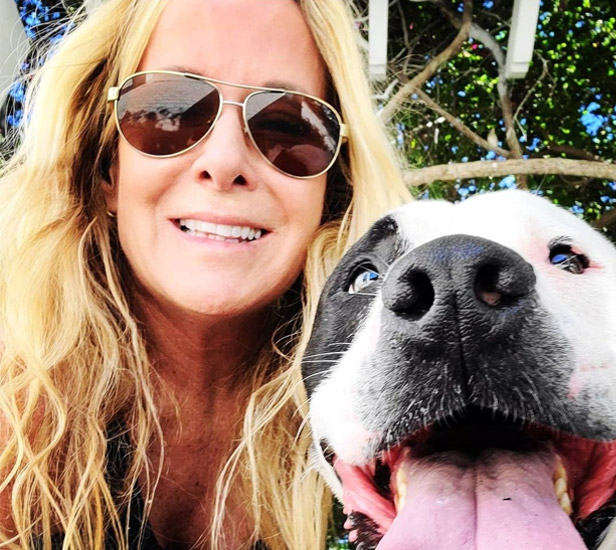
Kelly Moore, owner
A strong end to the third quarter had Kelly Moore feeling optimistic about her prospects in Q4, but that confidence has soured in recent weeks.
Early holiday gift ordering and education market-related orders helped spur the eleventh-hour Q3 revenue surge, which spilled over into the early part of the fourth quarter. But since then, sales have cooled considerably.
“So far, through the quarter, my sales are down about 12% from last year,” says Moore, the solo-operating owner of independent Florida-based Moore Promotions (asi/601617). “I did have a rush of people wanting Christmas gifts and gave a lot of quotes, but didn’t end up selling as much as I thought I would.”
Even so, business hasn’t gone dormant.
Moore has been executing what she describes as a fair deal of outerwear-related sales for clients. She’s also been collaborating with various marketing companies on initiatives for their customers. Margins are a bit slim though, as she only marks up 20% on those orders to leave room for the marketers to also achieve a profit.
Admittedly, the ups and downs of 2021, including a significant increase in the challenges and complexities of doing business as a result of supply chain disruption, have left Moore feeling burnt out.
“Dealing with angry clients has become a constant,” Moore says. “They’re upset because, due to the supply chain issues and the inventory shortages we’ve been dealing with as an industry, they can’t get what they want. I have to constantly put out fires. It’s numerous daily phone calls trying to soothe them.”
While Moore is skeptical that her fourth-quarter sales will recover to surpass last year’s tally, she hasn’t given up hope. She’s pulled rabbits out of the hat before and just may be able to do so again. “We’ll have to see,” she says, “how it goes.” – CR